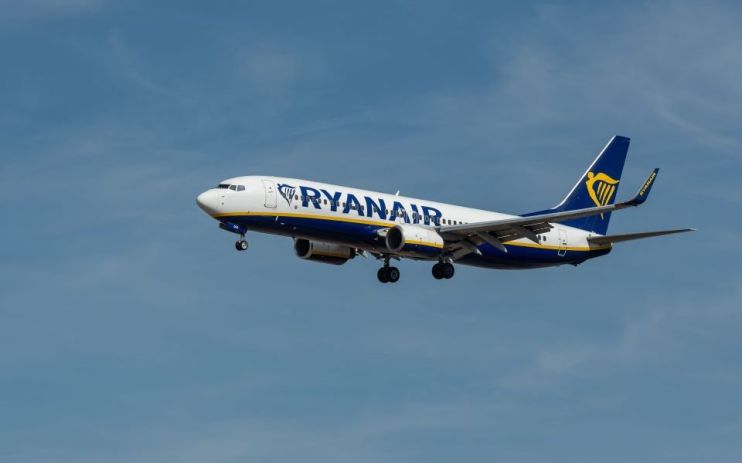Ryanair will ask for IAG divestments in €1bn Air Europa deal

Ryanair boss Michael O’Leary is ready to ask competition regulators to intervene in British Airways owner IAG’s purchase of Air Europa, he said today.
IAG is primed to buy the Spanish airline for €1bn (£860m) but O’Leary said he will ask the Competition and Markets Authority (CMA) to force the firm to make divestments to get the deal through.
Read more: Ryanair accused of saving millions in unpaid compensation claims
“It is a good deal for IAG, for Willie Walsh. I think it is a bad deal from a competition point of view,” O’Leary said on a conference call.
“It is a merger to monopoly in Madrid and I think we would certainly be looking for the competition authorities to require some competition divestments, particularly in the Air Europa short-haul.”
Ryanair’s share price rose 7.5 per cent to €13.42 today as investors shrugged off reduced profit guidance as the budget flyer delivered a bumper increase in add-on sales in its half-year results.
The budget airline narrowed full year profit guidance to €800m to €900m, down from its previous range of €750m to €950m. But it grew ancillary sales 16 per cent to offset lower air fares.
“The impression that Ryanair may be reaching some sort of endpoint after an air fare and seat volume war of attrition that’s lasted almost three years also boosted the shares,” added City Index analyst Ken Odeluga.
The figures
Ryanair reported a flat year-on-year profit of €1.15bn to the end of September as traffic rose 11 per cent to 86m passengers.
Revenue per passenger climbed one per cent, as a 16 per cent rise in add-on sales compensated for air fares that fell five per cent lower.
The flyer’s load factor remained at 96 per cent but fuel costs increased 22 per cent to deal Ryanair a €1.59bn hit. Net debt stood at €460m.
Meanwhile earnings per share crept up three per cent to €1.0247.
Why it’s interesting
O’Leary warned that the delayed arrival of Boeing’s aircraft have made job cuts inevitable.
“Sadly, due to the Max delivery delays, we will be forced to cut or close a number of loss making bases this winter leading to pilot and cabin crew job losses,” the company said.
“We continue to work with our people and their unions to finalise this process.”
Read more: Boeing CEO gets a grilling from US senators over 737 crashes
The founder also warned that there is “a real risk that it would have no Boeing 737 MAX aircraft flying next summer if there are additional delays to the return to service of the grounded aircraft”.
The airline now expects to receive just 20 Max 200s in time for summer 2020. That has forced the airline to more than halve its expected growth rate for next summer from seven per cent to just three per cent.
That translates to just 157m passengers in its 2021 full year, down from a forecast of 162m.
The late arrival of the aircraft, due to Boeing’s 737 Max being grounded following two fatal crashes, means Ryanair will not experience expected cost savings from the planes until 2021.
O’Leary blamed the delay for holding back growth at the airline, but ruled out bidding for Thomas Cook’s planes to plug the gap.
“I would be growing like gangbusters if I could,” he told analysts. “I would be knocking Norwegian out of business.
“I’m up for taking second hand aircraft but only if they’re cheaper. I’d never compromise on our cost base in favour of short term growth.”
What Ryanair said
“Our outlook for the remainder of the year remains cautious,” Ryanair said.
“We try to avoid the unreliable optimism of some competitors. We expect a slightly better fare environment than last winter, although we have limited H2 visibility. This however remains sensitive to any market uncertainty such as a no-deal Brexit. We expect ancillary revenues will grow ahead of traffic growth, supporting full-year revenue per guest growth of two per cent to three per cent.
Read more: Thomas Cook lives on in name only as branding bought for £11m
“The full year fuel bill will rise by €450m and ex-fuel unit costs will increase by two per cent.
“While Lauda’s losses will be higher than originally expected, due to overcapacity in Austria and Germany, traffic will be higher as we take advantage of the availability of low cost A320 leases.”
“This guidance is heavily dependent on close in H2 fares, Brexit and the absence of any security events.”